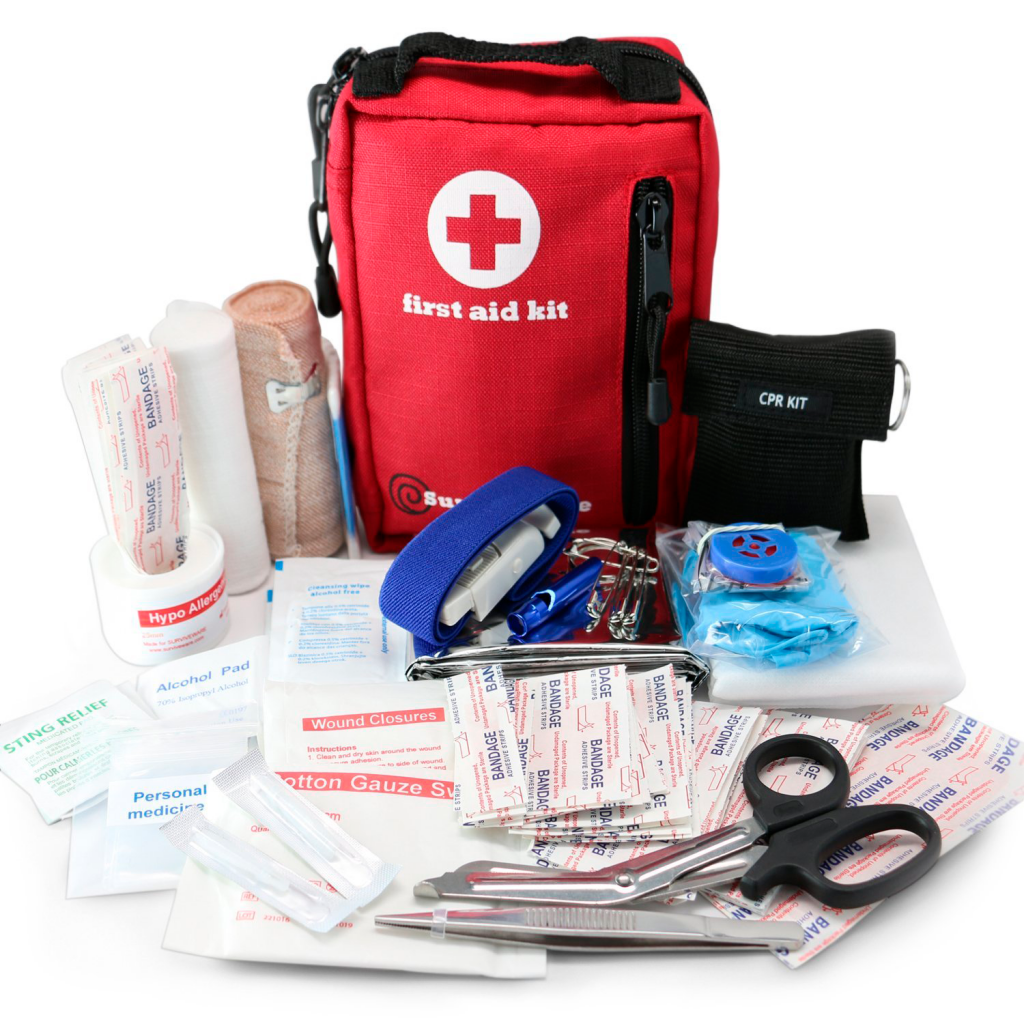

First Aid Essentials for your car are a critical aspect of any global journey. A well-stocked kit is not just a good idea; it’s often a necessity for unexpected roadside emergencies. Having the right equipment and understanding basic first-aid procedures could make a world of difference during an unexpected mishap or medical issue, especially when you are far from medical facilities. This article will outline essential first aid items and procedures for your car, preparing you for any eventuality when embarking on your next global adventure.
Building Your Comprehensive First Aid Kit
Essential Supplies for Roadside Emergencies
The foundation of any reliable car first aid kit is a collection of essential supplies. These items cover common injuries and illnesses you might encounter, particularly during longer drives or unforeseen incidents. While the exact contents can vary depending on your travel style and destination, certain items should always be included. These include sterile gauze pads in various sizes, adhesive bandages, antiseptic wipes or solution, pain relievers such as ibuprofen or acetaminophen, a thermometer for checking body temperature, scissors for wound care, and tweezers for removing splinters.
Considering Your Destination and Lifestyle
Beyond the standard essentials, considerations for your specific travel plans and personal requirements become necessary. For instance, travelers with pre-existing medical conditions or those headed to areas with specific health risks need additional provisions. If you’re planning a trek through the mountains or a safari adventure, you might want to add altitude sickness medication or insect bite treatment. Also, consider including any necessary personal medications, ensuring they are not expired. Pack enough for the duration of the trip.
The Importance of First Aid Training
Hands-on Skills and Emergency Procedures
While the kit itself is vital, practical first-aid skills are even more critical. Knowledge of how to handle various situations, from treating cuts and scrapes to performing basic CPR (cardiopulmonary resuscitation), will offer invaluable support. Even simple actions, such as controlling bleeding or administering pain relievers correctly, can drastically influence the outcome of a medical emergency.
Knowing how to use your first aid kit is equally crucial. Consider taking a certified first aid training course, ideally one covering wilderness or travel-specific scenarios.
Implementing Safety Protocols During Travel
Proactive Steps for Avoiding Emergencies
Proactive planning can substantially reduce the likelihood of experiencing roadside emergencies. When venturing abroad, thoroughly research potential hazards and common medical concerns within the regions you’ll be traversing. Knowing the local emergency services and contacting them promptly in case of an emergency is essential. This includes being prepared for potentially lengthy delays or seeking alternative routes should an issue arise.
Adapting Your Kit for Specific Needs
Tailoring Your Kit for Different Journeys
The content of your car first-aid kit should adapt to your specific needs. For example, a family trip will likely need additional supplies for children, such as allergy medications or remedies for minor burns. Similarly, a motorcycle trip might demand a kit with enhanced wound care provisions, considering the increased risk of more serious injuries. Planning ahead will help you create a kit that’s suitable for the specific conditions you anticipate encountering during your journey.
json
[
{"question": "What are the most crucial items to include in a car first aid kit for international travel?", "answer": "The most critical items for a global car first-aid kit often include antiseptic wipes, bandages in various sizes, pain relievers, a thermometer, scissors, a small pair of tweezers, and blister treatment. Beyond these basics, consider adding items like a CPR mask, personal medications (if needed), and a basic guide to local emergency services in the regions you'll be visiting. Remember to tailor the kit to your specific needs, considering potential health conditions and common illnesses in your destinations."},
{"question": "How often should I check and update my car first aid kit?", "answer": "Your car's first aid kit should be inspected and updated at least twice a year, or more frequently if you notice any expiration dates or shortages in any crucial supplies. This is particularly important if you're preparing for a prolonged trip or anticipating challenging terrain. Regular checks will ensure that your kit remains fully functional and stocked with up-to-date, effective supplies."},
{"question": "What preventive measures can I take when traveling internationally to avoid roadside medical emergencies?", "answer": "Taking preventive measures can significantly minimize the risk of medical emergencies on the road. Planning routes that avoid potentially hazardous areas is a fundamental safety precaution. Also, remember to inform someone about your travel plans and estimated return date, and ensure you have a means of communication if you get stranded."},
{"question": "How can I ensure the safety of my vehicle and occupants during foreign travel?", "answer": "Maintaining vehicle safety is paramount when traveling abroad. Familiarize yourself with local traffic regulations and driving practices before hitting the road. Ensure your vehicle is in good working order, including proper tire inflation, lights, and fluids to prevent sudden breakdowns and increase road safety during your travels."}
]
In conclusion, assembling a comprehensive first aid kit for your car is crucial for safe global journeys. Remember that preparedness extends beyond physical supplies; knowing how to use the kit effectively and having a plan for potential emergencies is equally important. By equipping your vehicle with the essentials listed above and practicing basic first aid skills, you can significantly improve your chances of managing common roadside mishaps and ensuring a smooth and safe travel experience, no matter where your adventures take you. For more detailed guidance, consider attending a first aid course to gain practical skills and confidence in handling medical emergencies.